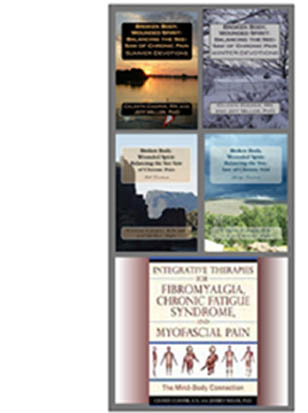THE WHY
Yeast is a fungi, and a certain amount is considered normal. It provides a natural flora in the mouth, skin, intestinal tract, and vagina, but when it overgrows, it can become the Incredible Hulk and cause a variety of infections.
Intestinal yeast overgrowth has been linked to small bowel bacterial overgrowth (SIBO). The symptoms of excessive gas, bloating, abdominal pain, and altered bowel habits are well known to the fibromyalgia and ME/CFS patient.
Thrush is an overgrowth of yeast in the mouth.
Insulin resistance and some medications (particularly antibiotics that knock out the normal growth environment of healthy amounts of yeast) may perpetuate yeast or leaky gut.
Yeast infections are exacerbated by excessive and unbalanced intake of sugar and carbohydrates causing bloating, brain fog, abdominal complaints, and the muscle aches connected with fibromyalgia and chronic myofascial pain. And chronic candidiasis syndrome has been identified as a possible trigger of chronic fatigue syndrome/myalgic encephalomyelitis (ME/CFS).
IS SOMETHING IN MY DIET PUTTING ME AT RISK?
The answer is YES, though our bodies do require some sugar and carbohydrates for cellular energy and brain function, excessive intake increases the risk of developing yeast overgrowth, particularly those who are immune compromised.
Sneak Peek from “Managing Your Diet,” Chapter Four, “My Body is Matter and it Matters”©
“The way food is converted, used, and stored depends upon the body’s metabolism. Sugar and complex carbohydrates trigger insulin release from the pancreas into the blood. Insulin plays a major role in carbohydrate metabolism and helps regulate the way our bodies utilize carbohydrates, lipids (fats), and amino acids (protein element) for cellular energy.” (Cooper and Miller, pg. 191)
WHAT CAN I DO?
Probiotics are recommended by specialists of the gastrointestinal tract, and eating yogurt with live cultures help maintain the natural flora. Equally important is a balanced diet, (discussed at length in Chapter Four, “My Body is Matter and it Matters.”)
See what Dr. Oz has to say at ShareCare, on daily protein intake. You will receive some great advice for taking control of some of your symptoms.
Related blog “SIBO, Yeast & Leaky Gut and YOU!
Resources:
D. W. Acheson and S. Luccioli, “Microbial-gut interactions in health and disease. Mucosal immune responses,” Best Practice & Research Clinical Gastroenterology 18, no. 2 (2004): 387–404.
R. E. Cater, 2nd, “Chronic intestinal candidiasis as a possible etiological factor in the chronic fatigue syndrome,” Medical Hypotheses 44, no. 6 (June 1995): 507–15.
Celeste Cooper and Jeff Miller, Integrative Therapies for Fibromyalgia, Chronic Fatigue Syndrome, and Myofascial Pain: The Mind-Body Connection (Vermont: Healing Arts Press, 2010).
R. S. Ivker and T. Nelson, Arthritis Survival: The Holistic Medical Treatment Program for Osteoarthritis (New York: Jeremy P. Tarcher, an imprint of Penguin Group, Inc., 2001).
T. Hung, J. L. Sievenpiper, A. Marchie, C. W. Kendall, and D. J. Jenkins, “Fat versus carbohydrates in insulin resistance, obesity, diabetes and cardiovascular disease,” Current Opinion in Clinical Nutrition & Metabolic Care 6, no. 2 (2003): 165–76.
Mehmet Oz, What Should Be My Required Daily Protein Intake? (accessed 9-7-11).
Devin. J. Starlanyl and Mary. E. Copeland, Fibromyalgia & Chronic Myofascial Pain Syndrome: A Survival Manual (Oakland, Calif.: New Harbinger Publications, Inc., 2001).











1 comment:
The symptoms of
leaky gut syndrome
are many and varied and include: abdominal pain, heartburn, insomnia, bloating, anxiety, gluten intolerance, malnutrition, muscle cramps and pains, poor exercise tolerance, food allergies.
Post a Comment